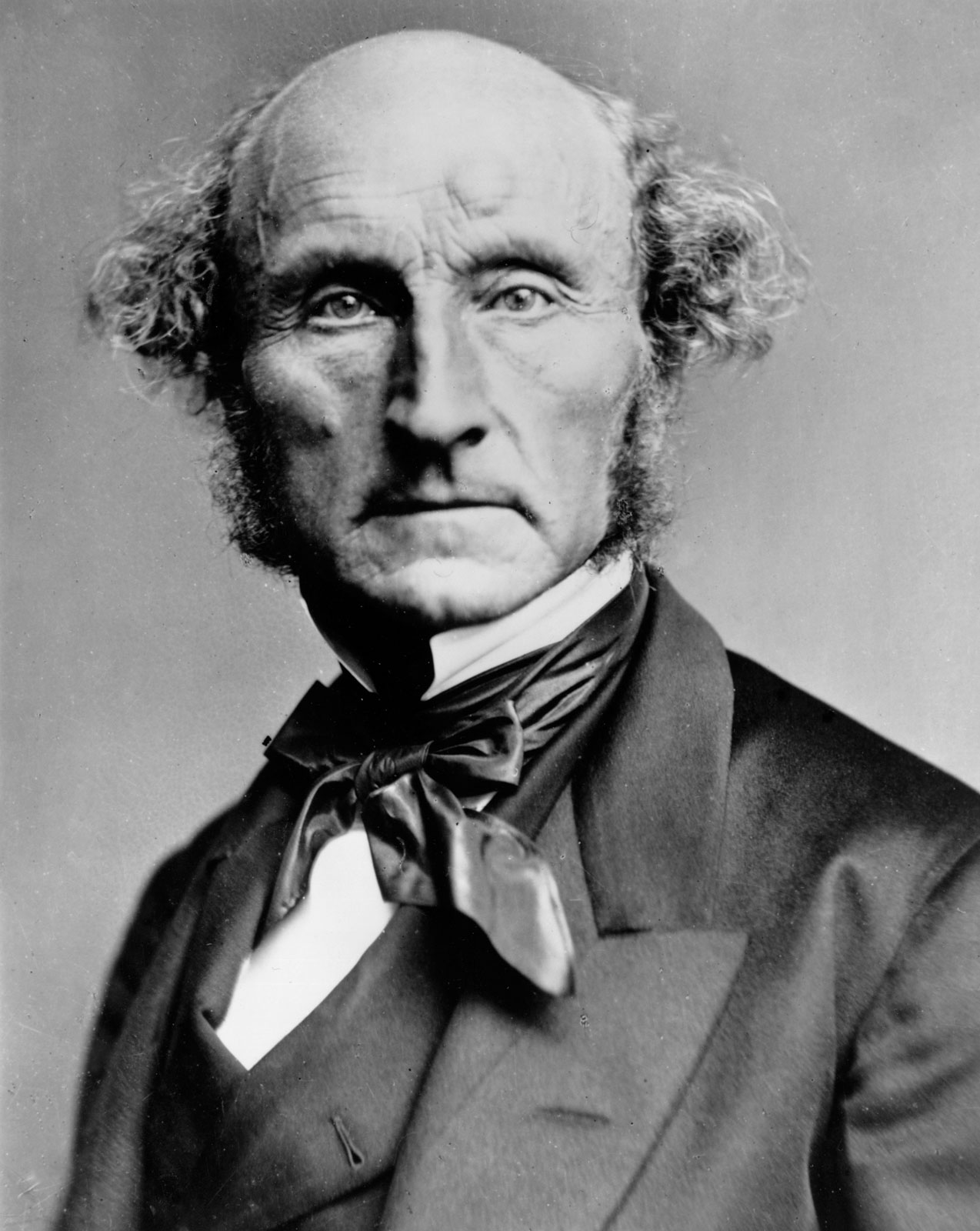But the peculiar evil of silencing the expression of an opinion is, that it is robbing the human race; posterity as well as the existing generation; those who dissent from the opinion, still more than those who hold it. If the opinion is right, they are deprived of the opportunity of exchanging error for truth: if wrong, they lose, what is almost as great a benefit, the clearer perception and livelier impression of truth, produced by its collision with error.
en
De la liberté
John Stuart Mill citations célèbres
“Celui qui ne connaît que ses propres arguments connaît mal sa cause.”
He who knows only his own side of the case, knows little of that.
en
De la liberté
“L'utilité même d'une opinion est affaire d'opinion.”
The usefulness of an opinion is itself matter of opinion.
en
De la liberté
History teems with instances of truth put down by persecution. If not suppressed forever, it may be thrown back for centuries.
en
De la liberté
“Le génie ne peut respirer librement que dans une atmosphère de liberté.”
Genius can only breathe freely in an atmosphere of freedom.
en
De la liberté
That so few now dare to be eccentric, marks the chief danger of the time.
en
De la liberté
Citations sur les hommes et les garçons de John Stuart Mill
That principle is, that the sole end for which mankind are warranted, individually or collectively, in interfering with the liberty of action of any of their number, is self-protection. That the only purpose for which power can be rightfully exercised over any member of a civilized community, against his will, is to prevent harm to others.
en
De la liberté
The worth of a State, in the long run, is the worth of the individuals composing it; and a State which postpones the interests of their mental expansion and elevation, to a little more of administrative skill, or that semblance of it which practice gives, in the details of business; a State, which dwarfs its men, in order that they may be more docile instruments in its hands even for beneficial purposes, will find that with small men no great thing can really be accomplished; and that the perfection of machinery to which it has sacrificed everything, will in the end avail it nothing, for want of the vital power which, in order that the machine might work more smoothly, it has preferred to banish.
en
De la liberté
His own good, either physical or moral, is not a sufficient warrant. He cannot rightfully be compelled to do or forbear because it will be better for him to do so, because it will make him happier, because, in the opinions of others, to do so would be wise, or even right.
en
De la liberté
John Stuart Mill: Citations en anglais
Attributed to John Stuart Mill in The Phrenological Journal and Science of Health, Vol. LXXXV (September 1887), p. 170
Disputed
In a Parliamentary debate with the Conservative MP, John Pakington (May 31, 1866). Hansard, vol 183, col 1592. Pakington was referring to Footnote 3 to Chapter 7 of Mill's "Considerations on Representative Government".
Misquoted as "I never meant to say that the Conservatives are generally stupid. I meant to say that stupid people are generally Conservative. I believe that is so obviously and universally admitted a principle that I hardly think any gentleman will deny it." in "Life of John Stuart Mill" (1889) by W. L. Courtney, p. 147.
This seems to have become paraphrased as "Conservatives are not necessarily stupid, but most stupid people are conservatives." which was a variant published in Quotations for Our Time (1978), edited by Laurence J. Peter.
Source: On Liberty (1859), Ch. II: Of the Liberty of Thought and Discussion
Source: An examination of Sir William Hamilton's philosophy, and of the principal philosophical questions discussed in his writings
Source: On Liberty (1859), Ch. II: Of the Liberty of Thought and Discussion
Source: On Liberty (1859), Ch. III: Of Individuality, As One of the Elements of Well-Being
“Both teachers and learners go to sleep at their post as soon as there is no enemy in the field.”
Source: On Liberty
Source: Autobiography (1873)
https://archive.org/details/autobiography01mill/page/43/mode/1up p. 43
Source: https://archive.org/details/autobiography01mill/page/138/mode/1up p. 138
Source: Autobiography (1873), Ch. 7: General View of the Remainder of My Life (p. 206)
Source: Autobiography (1873)
Source: https://archive.org/details/autobiography01mill/page/47/mode/1up p. 47
Source: Autobiography (1873)
Source: https://archive.org/details/autobiography01mill/page/160/mode/1up pp. 160-161
Source: Autobiography (1873), Ch. 7: General View of the Remainder of My Life (p. 167)
An Examination of Sir William Hamilton's Philosophy (1865) as quoted in 5th ed. (1878) p. 617. https://books.google.com/books?id=ojQNAQAAMAAJ&pg=PA617
Principles of Political Economy (1848), Book IV, Chapter VI, §2
Dr. Whewell on Moral Philosophy (1852), in Dissertations and Discussions: Political, Philosophical, and Historical, vol. 2, London: John W. Parker and son, 1859, p. 485 https://books.google.it/books?id=w-I3AQAAMAAJ&pg=PA485
Source: Autobiography (1873), Ch. 1: Childhood and Early Education
